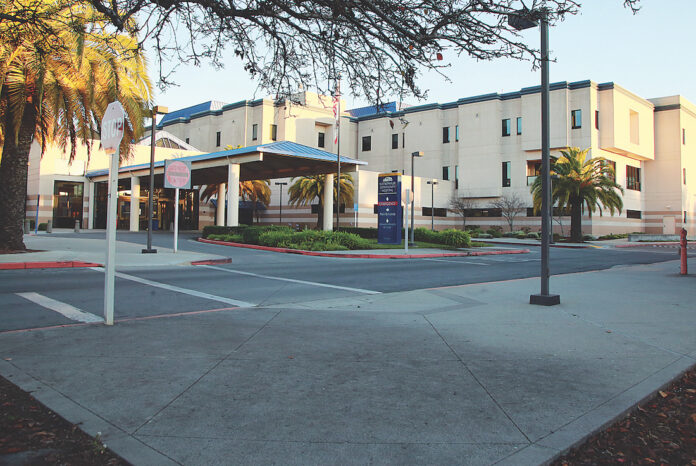WATSONVILLE—The local nonprofit created to purchase and run Watsonville Community Hospital has won its bid to buy the hospital’s operations, a move that canceled a planned auction and advanced the matter to a sale hearing on Wednesday.
According to documents filed with the Northern District U.S. Bankruptcy Court in San Jose, no other qualified bidder stated their interest in making the purchase by the deadline last week, moving Pajaro Valley Healthcare District Project (PVHD) a hair’s width from reaching its goal.
According to former Santa Cruz County Health Officer Mimi Hall—who has been at the forefront of the group’s formation, the court will review PVHD’s purchase proposal, along with the nonprofit’s financial ability to acquire and operate the hospital.
PVHD stepped forward late last year, soon after hospital officials announced they were facing possible closure unless a buyer stepped forward.
If the sale goes through, it will be a welcome relief to many in the Pajaro Valley community, who for years have watched out-of-town corporate management and a declining financial picture.
After remaining under local control for decades from its 1895 inception, hospital leaders in 1993, fearing a grim financial picture, partnered with Community Health Systems (CHS), which took over operations.
CHS created a spinoff company called Quorum Health Corporation in 2016, which sold the hospital to Los Angeles-based Halsen Healthcare in 2019.
That company—formed exclusively to purchase the hospital (and which still officially owns it)—sold the physical building and grounds to Alabama-based Medical Properties Trust (MPT), to lease it from them in a so-called sale/leaseback.
The hospital board ousted Halsen in January 2021, stating that the company was unable to meet “financial obligations to various stakeholders.” In its place, the board installed Los Angeles-based Prospect Medical Holdings.
Hall says the healthcare district would bring local control back to South County’s hospital.
What is a Healthcare District?
A board of elected leaders similar to county boards of supervisors and school trustees—and governed by the same rules—health care districts are created to oversee some aspect of local health care. Because they are public agencies, they have bylaws that require open meetings and public input when any changes are proposed.
California currently has 77 health care districts, 32 of which run hospitals.
Better still, health care districts are not bound by the profit-centric models of many hospitals, says Hall.
Hall adds that they often serve rural communities with health care provider shortages, large populations of under-insured and uninsured people as well as those on MediCal.
“They meet a need that probably only government is going to properly meet,” she says. “The whole reason we’re forming a health care district is we want a local form of government that is directly accountable to the communities they serve. It assures open government, oversight, transparency and it’s mission-focused. Our mission is to make sure that the community’s needs are met forever.”









